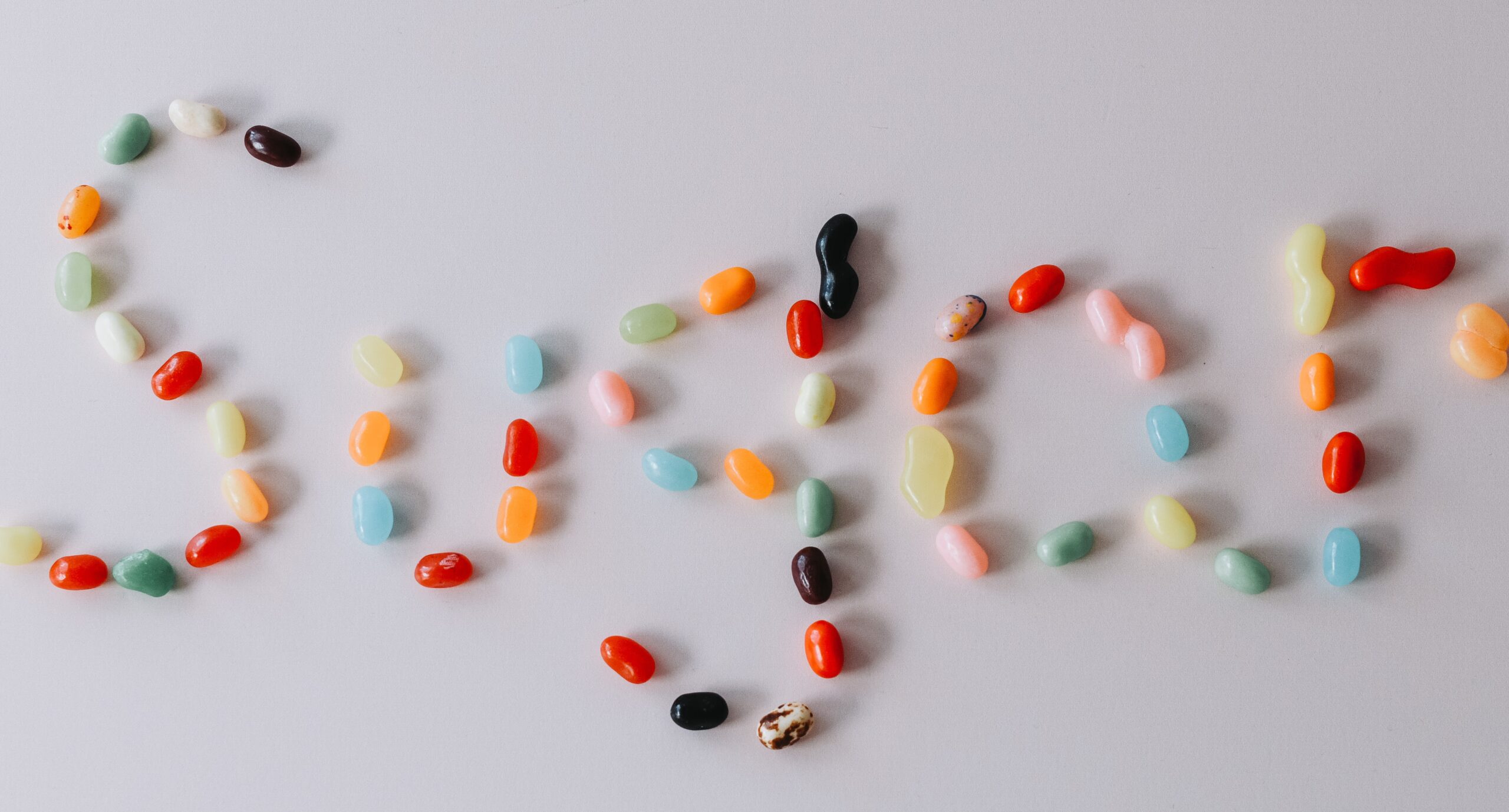 There has been an interesting shift in the nutrition conversation over the last few years, where the focus of our conversation has been solely on nutrients. What I mean by this is we say things such as:
There has been an interesting shift in the nutrition conversation over the last few years, where the focus of our conversation has been solely on nutrients. What I mean by this is we say things such as:
“I don’t eat carbs”
“That has too much sugar”
“I’m really trying to add in fat”
On the surface this is accurate and if you are a nutrition nerd like me and spend your days reading nutrition studies, a lot of them will be based on these nutrients.
But here is the thing:
We don’t eat nutrients, we eat food.
While the study about rats drinking sugar water may provide some insight, it is not especially helpful when you are standing at the grocery store trying to figure out what to eat.
It can cause us to demonize certain foods
Let’s take sugar for an example:
| 1 Apple | 3 Carrots | 10 jelly beans | |
|
Sugar (g) |
21g | 9g | 8g |
Looking at this, it would appear that the apple will send you straight to the hospital and the jelly beans may help you live indefinitely. However, if you are looking at just the nutrients, you are missing the big picture.
First the apples and carrots have a different type of sugar than the jelly beans, so it has a different impact on your body. Second, they have fiber, which slows down the absorption of the sugar. Third, they have actual vitamins & minerals, which can impact your overall health and metabolism. Finally, the time it takes to eat the apple or carrots is significantly longer than the jelly beans and the way we relate to them is completely different. This allows you to get full and the portions can regulate themselves. When was the last time you barreled through a whole bag of apples?
The example may seem extreme (yes, we all know that apples are a better option then jelly beans), but have you ever put bananas on the “bad” list because of the sugar content but then polished off a box of keto crackers?
This leads to the next issue…
It can cause us to justify or glorify certain foods
It is easy to put nutrients in good and bad categories (i.e. sugar is bad, fiber is good, fat used to be bad, now fat is good). In turn, we then put food in good and bad categories. This is quite simply not true (food does not have value, I promise!) and it can have a dramatic impact on how we relate to that food.
We will often believe that when either the “good” nutrient is present, or the “bad” nutrient is absent, that the food is automatically in your best interest. Examples:
“Fat is good for me so now I eat bacon at all meals.”
“This bottle of wine is sugar free and keto friendly so now I drink 3 at a time.”
Just because a little of something is beneficial, does not mean that a lot of it makes it great.
What do you do with this information?
There is nothing wrong with learning about nutrients or digging into nutrition information – of course, I encourage that! It is also important to take a step back and look at the big picture from time to time. Learn about nutrients but don’t forget that the way that food comes together in nature as well in preparation tends to have a significant impact on how that nutrient behaves.
This is also not to make light of the impact of sugar overall (or encourage massive jelly bean intake)! If you are worried about sugar’s impact on blood sugar, pay close attention to the first tip in this blog: 5 Sneaky Reasons You are So Hungry.

